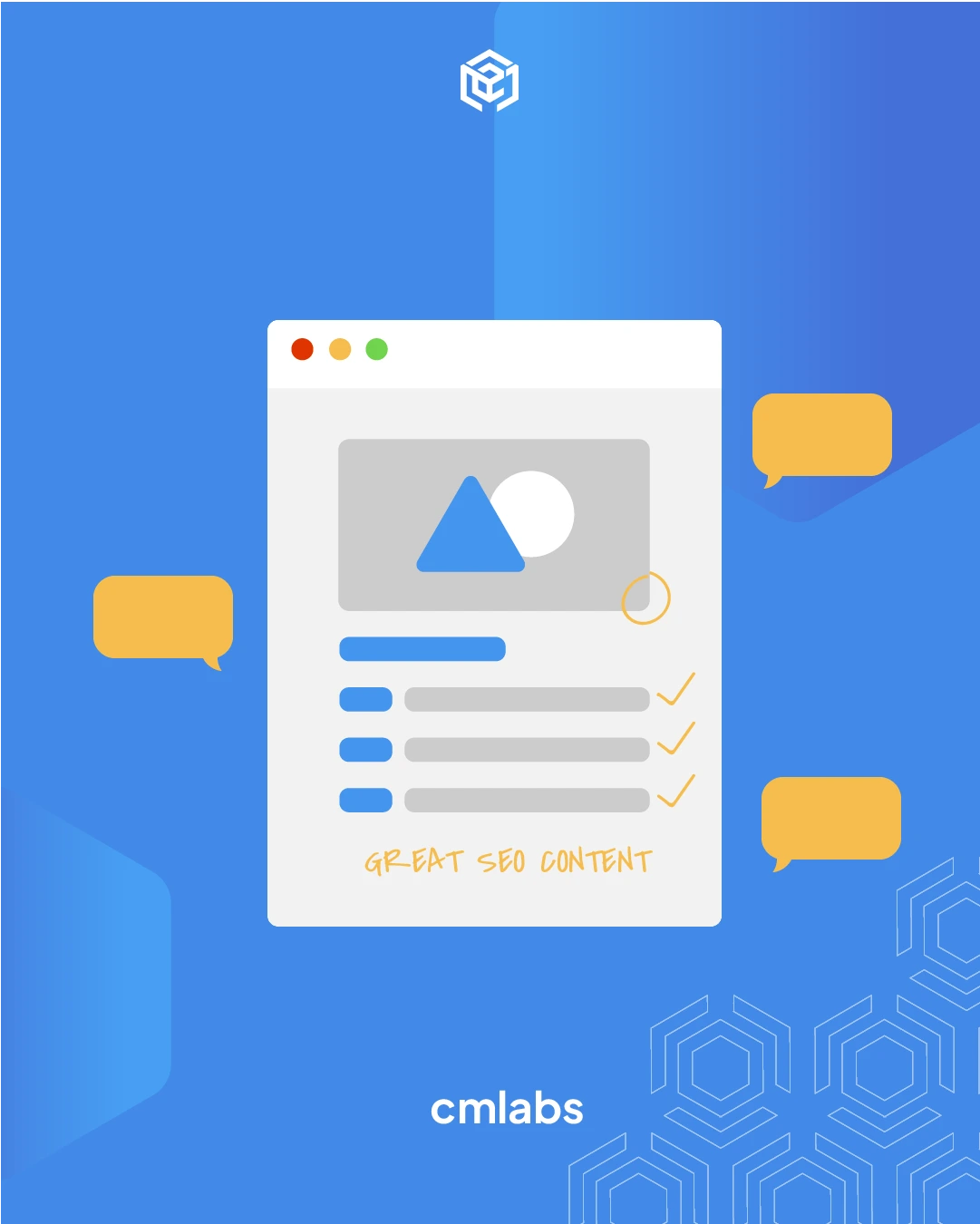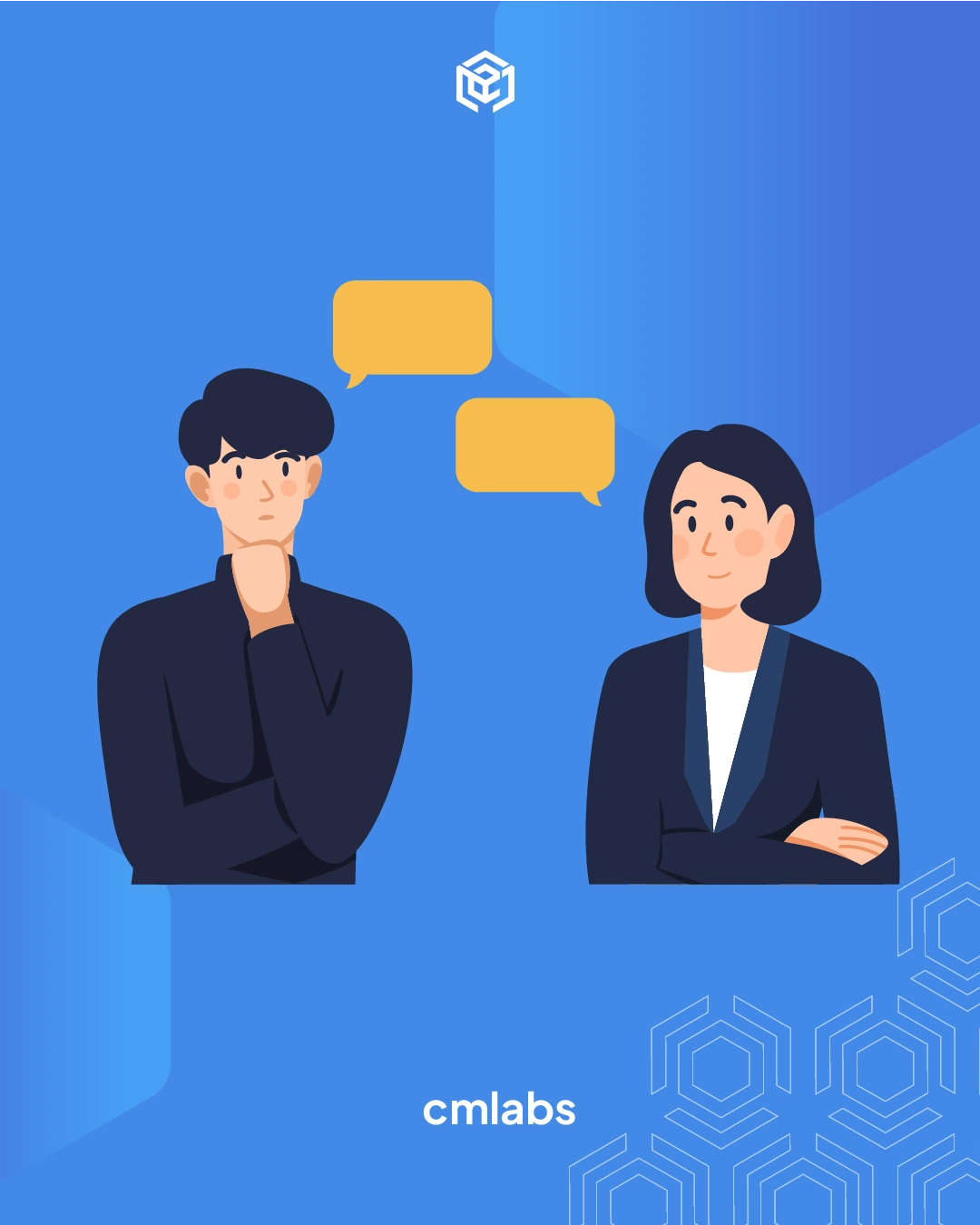We use cookies
This site uses cookies from cmlabs to deliver and enhance the quality of its services and to analyze traffic..
SEO SERVICES
Conduct in-depth technical website audits, strategically develop website projections, and increase your website authority.
ASO SERVICES
Elevate Your App’s Presence with Our Expert ASO Services – Boost Visibility and Drive Downloads!
WRITING SERVICES
We offer a variety of writing services to suit different business necessities. Reach broader audiences or lead specific industries? We've got you covered!
SEOlutions
A unified source of truth!
SEO & Digital Maternity Solution
SEO & Digital Maternity Solution: Leverage Cross-Platform Insights to Elevate Your Strategy with Expert Consultation
SEO & Digital Maternity Solution
Data Solution options:
Starting from Rp200 mio
Reinventing how a company get creative treatments
A new way to get your creative needs done. Agile team, efficient cost, and expedient way in a flexible yet scalable subscription plan!
Creative-as-a-Services
CaaS package options:
Based on Subscription
Pioneer in digital marketing software powerhouse
We’re excited to unveil our new range of Tech Solutions designed to drive your digital success. Whether you’re looking to enhance your website’s performance, streamline your tech stack, or unlock deeper insights from your data, we’ve got you covered.
Starting from Rp250 mio
Our Clients
Research and innovation center for digital transformation
Digital marketing combines technical skills and business knowledge at every stage. For marketing teams, improving budget management efficiency is crucial, as time is an invaluable resource that should be used wisely. At Sequence, we are dedicated to empowering you to optimize efficiency and strategic planning, ultimately enhancing the impact of your digital marketing efforts.
Subscription-based (IDR1,800/keyword)
Our Clients
BeyondSEO
References
SEO Tools for Webmasters
SEO Tools for Writers
SEO Tools
FIND THE SUITABLE PARTNERSHIP FOR YOUR COMPANY
Check out which cmlabs partnership program suits your company
WHITE LABEL SEO
for CorporateYour company is granted exclusive partnership rights to provide SEO services to our important clients, and we will provide a dedicated backend team to support your efforts.
AFFILIATE PROGRAM
for BizdevA new affiliate program is being introduced for skilled marketers and individuals with strong networks, offering commissions of up to 7% for generating profits independently.
DIGITAL AGENCY
for Marketing Partnerscmlabs is an essential partner for digital agencies, providing a unique selling proposition in Search Engine Optimization (SEO).
BACKLINK PARTNERSHIP
for Media / BloggerWe have a vast database of bloggers and media outlets across Indonesia, categorized by region and media type, giving our clients an edge in managing their media and SEO activities.
OFFICIAL TRAINING
We provide ongoing professional development and support to SEO professionals to ensure they are equipped to meet market demands.
JOIN AS CONTRIBUTOR
for Content WriterGreat opportunity for SEO Writers around the world. T&C applied!
ACADEMIC PARTNERSHIP
Through partnerships with universities in Indonesia, cmlabs has helped align academic curricula with industry demands.
Partnership
Sector & Industries
Tell us your SEO needs, our marketing team will help you find the best solution
As an alternative, you can schedule a conference call with our team
Schedule a Meeting?Contact
Survey
We use cookies
This site uses cookies from cmlabs to deliver and enhance the quality of its services and to analyze traffic..
Last updated: Jun 20, 2024
Cloud computing is a method of delivering services and resources over the Internet, such as
servers, applications, software, databases, or networks. It allows companies or individuals to store data in a virtual space accessible anytime and anywhere with an internet connection.
This method offers an alternative to traditional data storage on laptops or cell phones. There are two main types of cloud computing: public and private.
Public cloud computing offers services accessible to anyone on the internet, while private cloud computing restricts access to certain users, often used by companies for data protection.
There's also hybrid cloud computing, which combines public and private clouds. It provides the security of a private cloud but maintains the accessibility of a public cloud.
The benefit of cloud computing is that you can access storage, computing services, and others without having to manage or purchase physical server data. You can rent cloud services from several providers on the internet.
In addition, using this computing is considered more cost-effective, efficient, and secure. Some users also think that cloud computing is a storage option that can increase productivity and work speed. No wonder it is so popular among many users.
After knowing what is cloud computing, let's learn about the types of cloud computing. The types are as follows.
SaaS is a type of cloud computing that manages the hardware, infrastructure, applications and sites of a system.
The next function of cloud computing is to update and maintain the security of the device. So, users only need to subscribe and utilize existing services.
This type of cloud computing computing provides databases, servers, and other elements to build an application.
Users can directly access the platform and create their applications on the internet. PaaS is also considered flexible and cost-effective, where users can manage computing resources according to the needs of their site or application.
IaaS is computing that manages applications or database networks without the need for computer hardware as long as you have enough knowledge to manage the existing software.
This cloud computing type can also handle device configuration issues without incurring system maintenance costs.
After you understand what is cloud computing, you also need to know how it works. As mentioned, cloud computing functions as a secure server, where user data is uploaded through the internet.
These servers use security systems like firewalls and encryption to ensure data availability and confidentiality. Once uploaded, the data is processed by the cloud system and can be accessed by users through any internet-connected device.
After discussing what is cloud computing, its types and functions, let's explore the advantages and disadvantages to help you decide if it's suitable for your business or personal needs.
Cloud computing has several advantages, including:
However, there are drawbacks to cloud computing you need to know to mitigate the risks that may arise, including:
You can use cloud computing for various purposes, such as web hosting, business operations, data processing, and so on.
An example of cloud computing is web hosting which is used to store sites or applications.
Web hosting can store data, such as text, videos, images, and others.
In this case, cloud computing can reduce the transfer bottleneck of the central system and avoid the risk of load balancing.
In addition, you can also use cloud computing for business operations. Perhaps you are familiar with customer relationship management (CRM) which can help businesses to manage customers.
Cloud computing is also used in data storage, backup, analysis, and retrieval activities. You can also build and test applications using this computing, as well as stream video and audio.
Although relatively new, cloud computing services are already widely used by companies and individuals. It also offers other services, such as standard work programs, artificial intelligence, and language processing.
WDYT, you like my article?
Couldn't find result for "Mulki" try to search with different keyword
Suggestion:
Tell us your SEO needs, our marketing team will help you find the best solution
As an alternative, you can schedule a conference call with our team
Schedule a Meeting?



cmlabs Jakarta Jl. Pluit Kencana Raya No.63, Pluit, Penjaringan, Jakarta Utara, DKI Jakarta, 14450, Indonesia
(+62) 21-666-04470These strategic alliances allow us to offer our clients a wider range of SEO innovative solutions and exceptional service.

Psst! Hey there, SEO Stats and Tools SEO company! If you've ever planned of conquering the Singapore market, you've come to the right place!